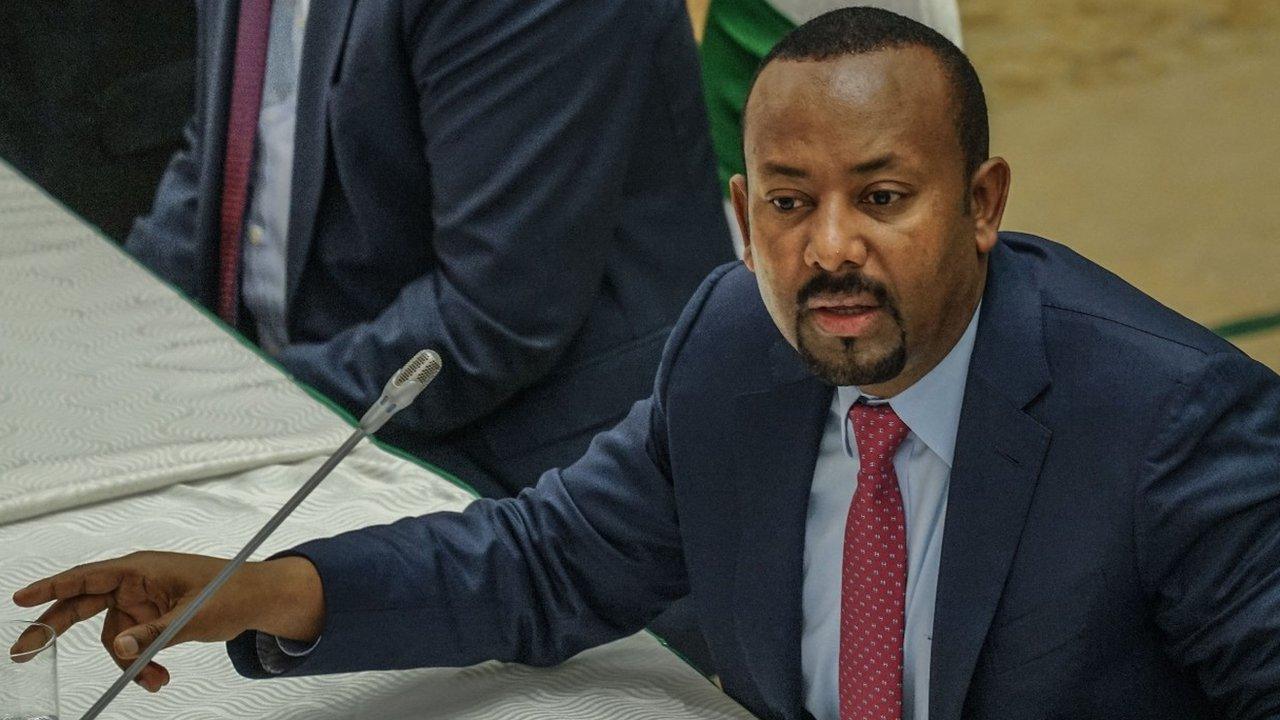Ethiopia elections 2021: Abiy Ahmed faces first vote amid conflict
- Published
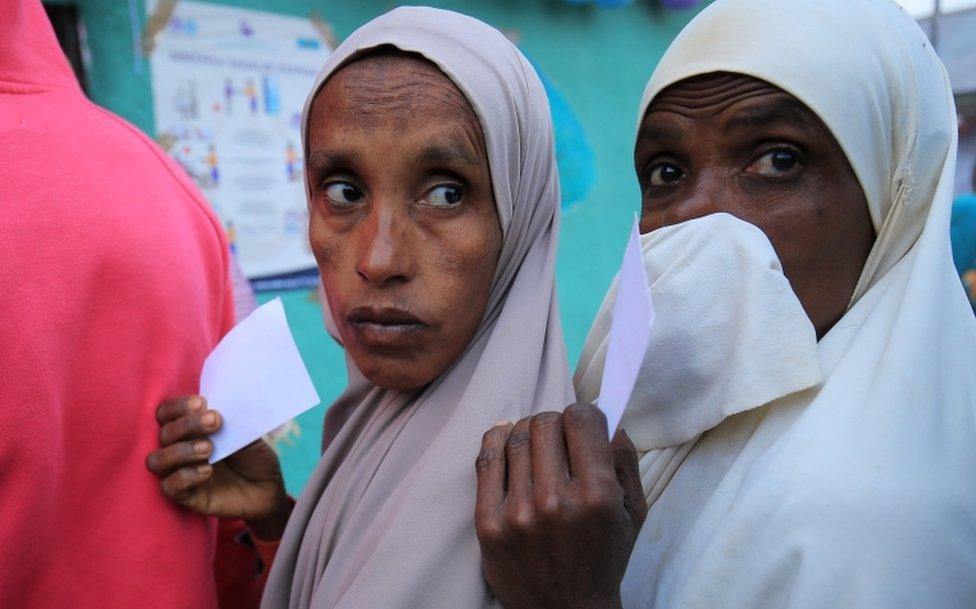
Some 37 million people registered to vote in the election
Ethiopians have been voting in key elections amid rising tensions and a conflict in the northern Tigray region.
This pandemic-delayed poll is Prime Minister Abiy Ahmed's first electoral test since coming to power in 2018.
But the vote was postponed in Tigray, where the army has been fighting a local force since November.
Insecurity and logistical problems have hit other parts of the country as well, so overall there was no voting in about a fifth of constituencies.
The Tigray conflict has sparked a humanitarian crisis, with 350,000 people living in famine conditions, according to a recent assessment.
The head of the electoral commission, Birtukan Mideksa, said that while things had gone mostly smoothly she was worried about the intimidation of opposition party agents in some places - particularly in the Amhara region and the Southern Nations, Nationalities, and Peoples' Region.
"Some complain they have been beaten or denied access to voting stations," she told journalists.
"If this issue is not resolved immediately the outcome of the election might be compromised."
Voting was due to end at 18:00 local time (15:00 GMT) but has been extended by three hours in some areas because election materials arrived late.
In the capital, Addis Ababa, BBC reporters saw long queues of voters during the day. It is one area where Mr Abiy is expected to face a stiff challenge and where the opposition has succeeded in the past.
"I came here to contribute to the election which I believe could be a great milestone for democracy," Demiss Beyene, who started queuing two hours before polls opened, told the BBC.
"I believe the election will bring in peace... I really wish this election brings back our unity, instead of dividing us over ethnicity," Tadelech Benti, another voter in Addis Ababa, said.
The general election, the first since 2015, was originally slated for August 2020 but was rescheduled because of coronavirus.
Results are expected within five days.
Why are these elections so important?
Mr Abiy came to power in 2018 as the nominee of the then-ruling coalition but he has never faced the electorate.
He became prime minister on the back of protests against the government dominated by the Tigray People's Liberation Front (TPLF) and introduced a series of reforms.
In the last election, the ruling Ethiopian People's Revolutionary Democratic Front (EPRDF) coalition and its allies won all the seats but Mr Abiy has dissolved the coalition and created a new party - the Prosperity Party - in an attempt to reduce ethnic division. The TPLF, however, did not join.
Abiy Ahmed: I hope it will be the best election in our history
Mr Abiy will keep his post if the party wins a majority of the 547 seats in the national assembly. He says the polls will be "the nation's first attempt at free and fair elections".
His reformist zeal saw him win the 2019 Nobel Peace Prize, but just a year later, he launched a military operation in his own country. He deployed troops to Tigray to oust the TPLF as the region's ruling party after it seized military bases in what Mr Abiy saw as a bid to overthrow him.
It resulted in a conflict that has killed thousands of people and has led to mass hunger and reports of a famine in the region.
What does the opposition say?
More than 40 parties have fielded candidates but most of them are regional parties.
Opposition parties have complained that a government crackdown against their officials disrupted their plans to prepare for the polls.
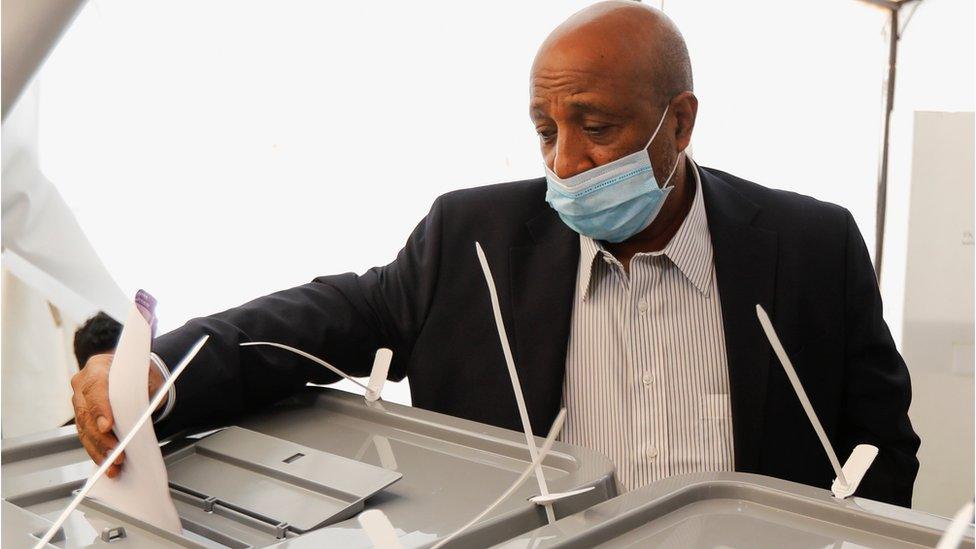
Opposition leader Berhanu Nega cast his vote in Addis Ababa
Casting his vote, Berhanu Nega the leader of one of the main opposition parties, Ethiopian Citizens for Social Justice, said he hoped the result would reflect the popular will.
"This doesn't mean there will not be problems. But the problems would not be significant enough to overturn or reflect what the public actually voted," he told journalists at the polling station.
In some pivotal regions, such as Oromia, opposition parties are boycotting the election, alleging government intimidation.
The TPLF has been designated a terrorist organisation. Some of its leaders have been arrested, while others are on the run or are continuing to wage a guerrilla war in Tigray.

The view from Abiy Ahmed's home constituency
Catherine Byaruhanga, BBC News, Beshasha village, Ethiopia
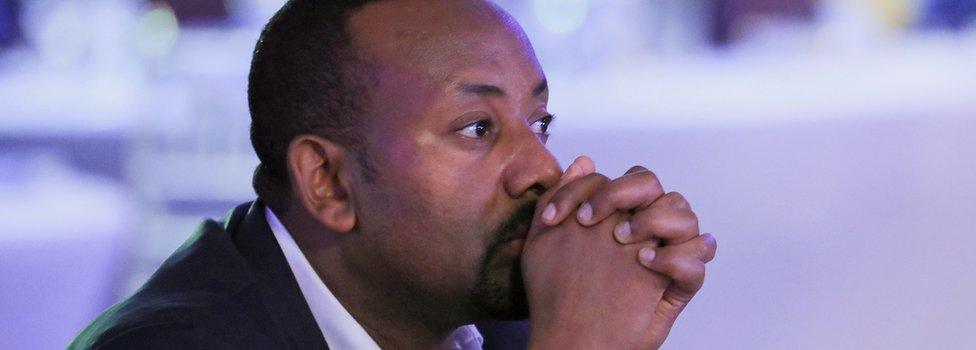
In the valley between rolling hills the local market in Beshasha village has been turned into a polling station for the day.
This is where Prime Minister Abiy Ahmed was born and grew up and he is hugely popular.
But there are two candidates running against Mr Abiy and they tell me that local officials have harassed their supporters and made it hard for them to campaign. Yet they're careful about how much they criticise the prime minister.
Some of the country's biggest political parties have boycotted this election citing intimidation from the state. And some of Mr Abiy's biggest opponents on the national stage are in detention accused of trying to destabilise the country.
Despite the fact that 20% of constituencies will not vote today the government is standing by today's vote and says it will be a genuine reflection of the will of Ethiopians.

Find out more about Ethiopia's election:

Will the poll be free and fair?
Despite being billed as a national contest, elections will not be held in around one-fifth of the country's 547 constituencies, including all 38 seats in Tigray and 64 others across Ethiopia.
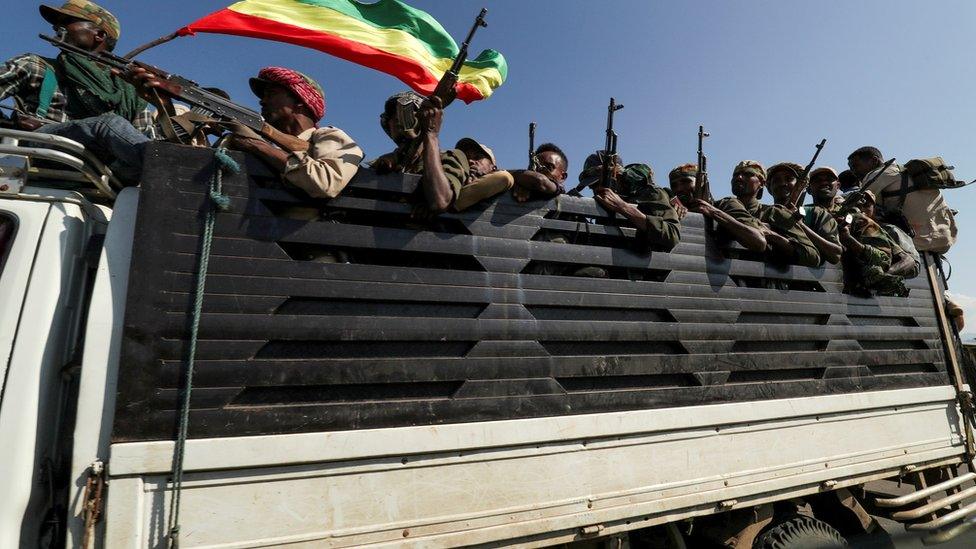
Voting is not taking place in the war-torn Tigray region
Most of the delayed votes are scheduled for 6 September though no date has been set yet for Tigray.
There are election observers from the African Union as well as a number of Ethiopian groups but the EU will not be sending a team. In May, the EU accused Ethiopia of failing to guarantee the independence of its mission.
Mr Abiy has dismissed international concern and has insisted the election will be free and fair.
"When the entire world is saying we will fight on election day, we will instead teach them a lesson," he told supporters at a rally last week.
Related topics
- Published21 June 2021
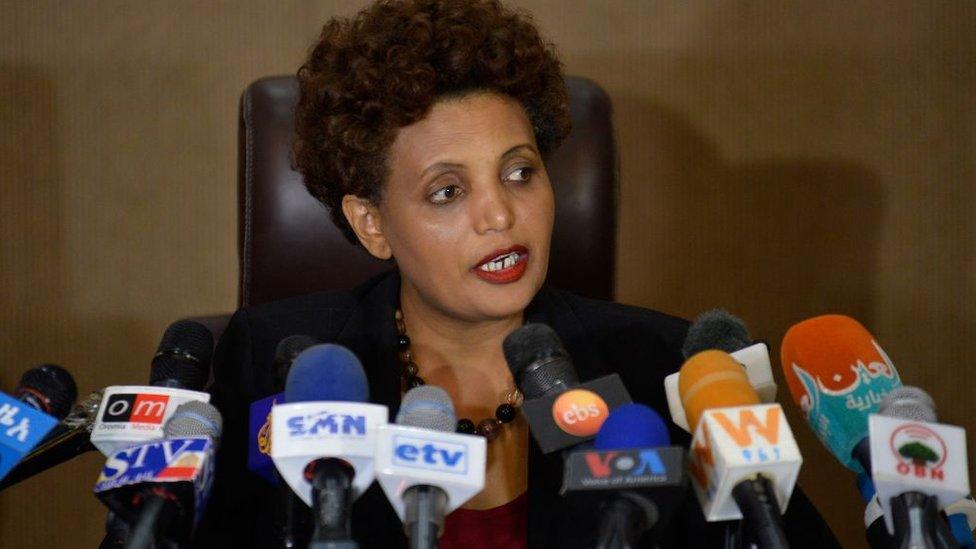
- Published18 June 2021
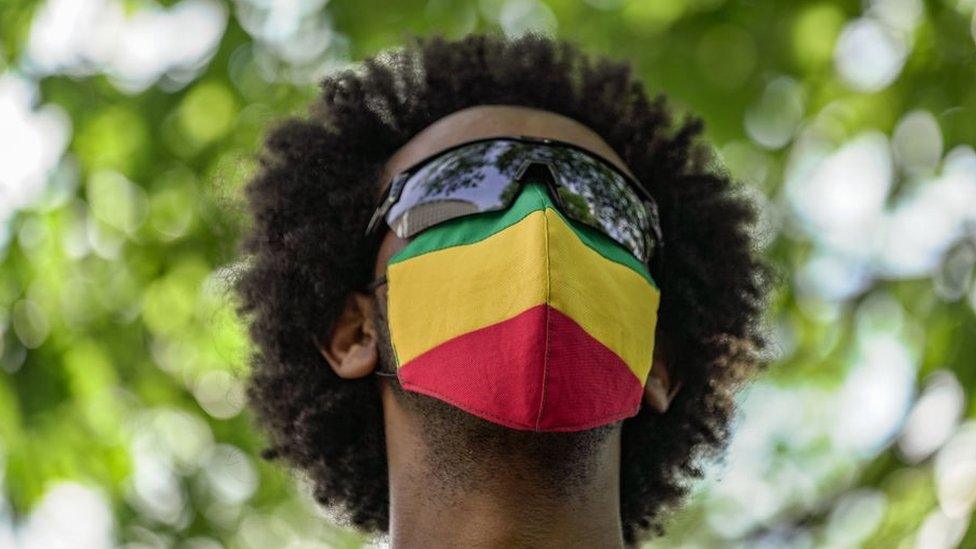
- Published19 June 2021
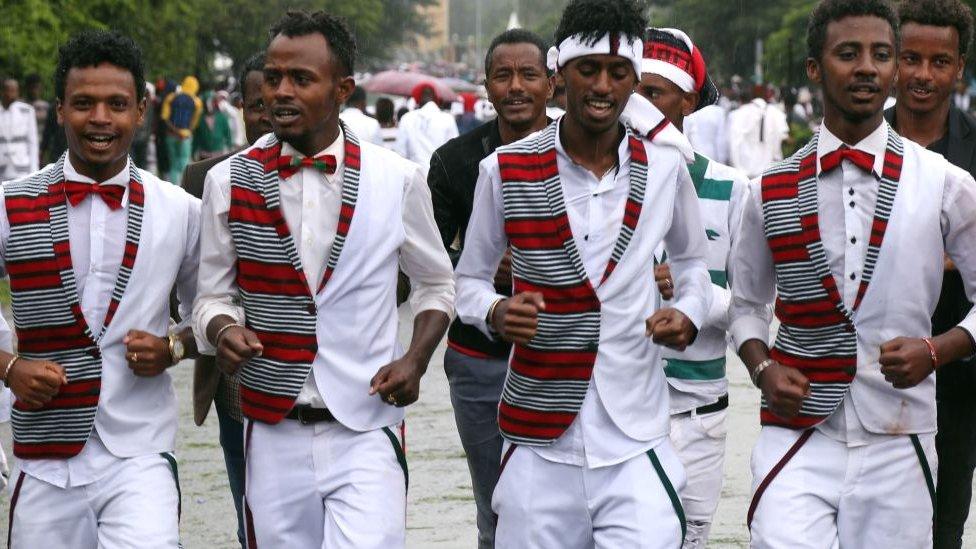
- Published11 October 2021
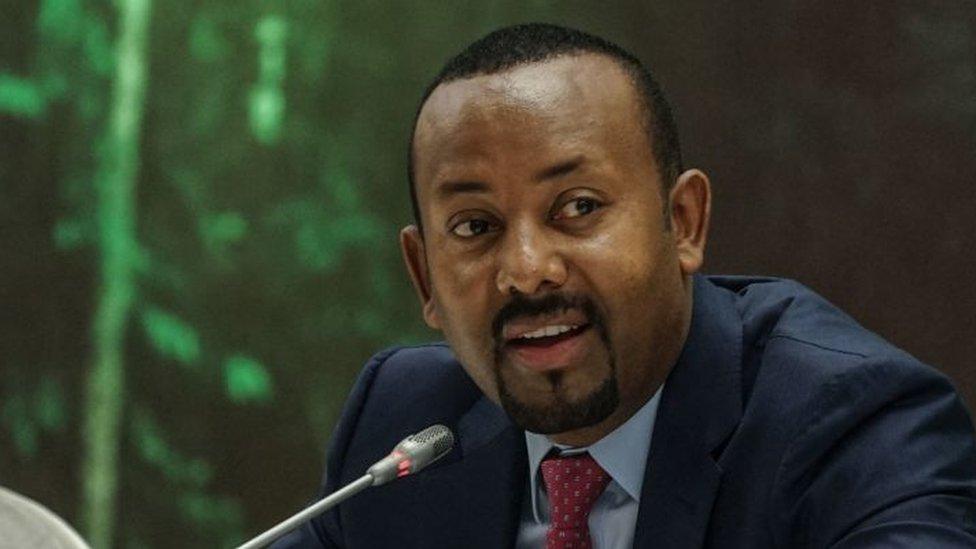
- Published15 June 2021
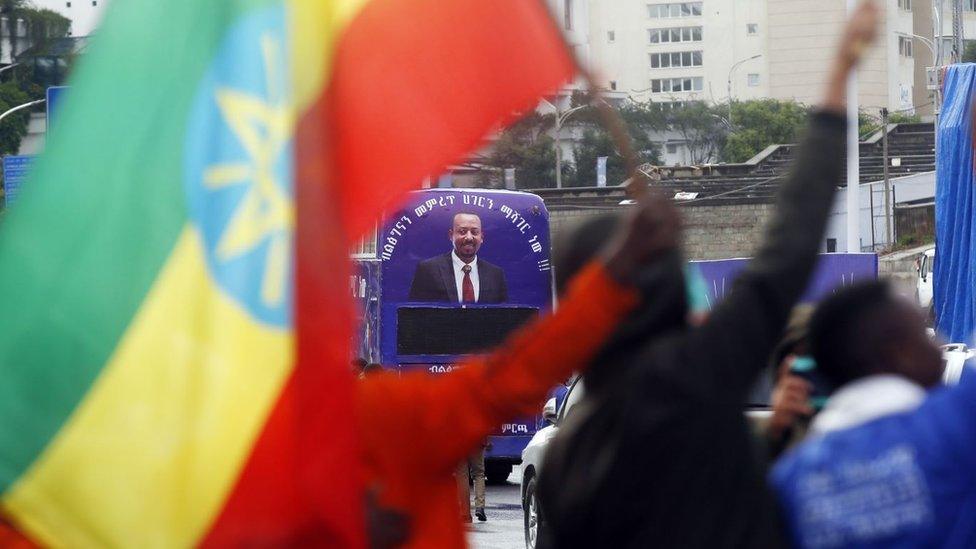
- Published16 June 2021
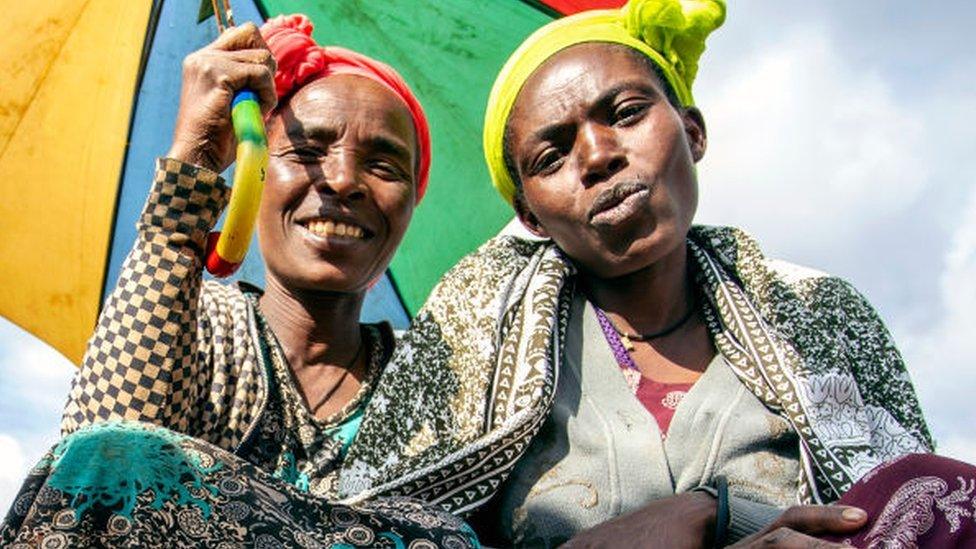
- Published20 June 2021
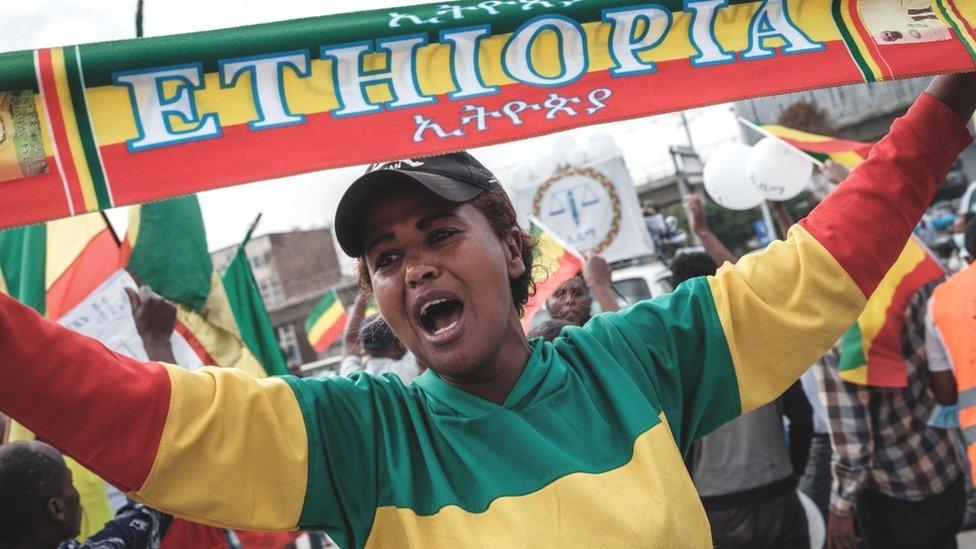
- Published8 June 2021
